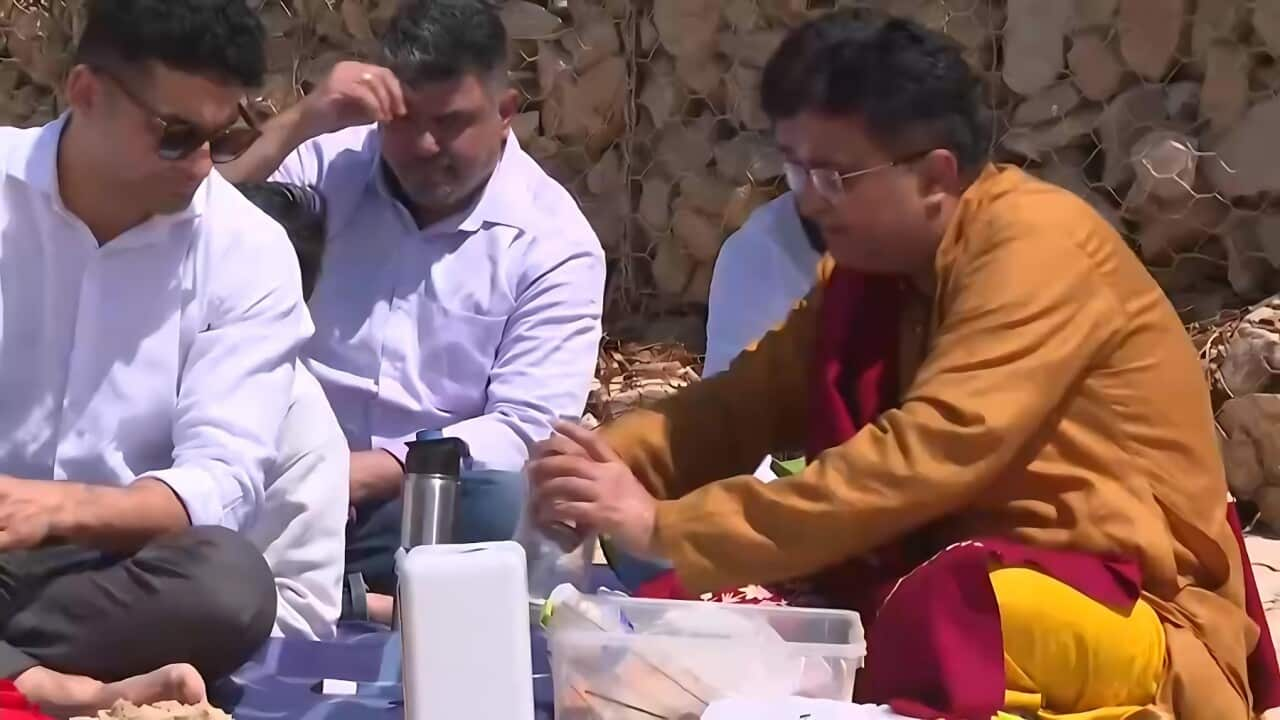TRANSCRIPT
In the late afternoon light Shubhraj wades into the Port River, an earthenware pot under his arm.
The small Adelaide beach also known as Harishchandra Ghat is now a special place for a very sacred ritual.
Shubhraj’s family watch as he disperses the ashes of his 96-year-old father’s body into the water.
"That’s the final farewell you can say from the family side and it’s naturally very emotional part of the process. At that time the sun was going to set when we went there and the whole of my family was there and we performed that and said the final goodbye."
Shubhraj’s parents migrated to Australia more than a decade ago, from the Indian city of Varanasi, one of seven sacred cities of Hinduism along the River
Performing last rites at a water ceremony site is a culturally appropriate way to farewell their 96-year-old patriarch.
"Once you have got the ashes, it is something that should be immersed as soon as possible and having a dedicated place to do that activity to do that ritual it’s very very good for us and we need not keep those things with us."
Pandit ji Kinjal Kumer Bhatt. a Hindu priest explains.
"What we believe is that the holy river Ganga is the pathway to the home of the gods and then when we put these ashes into the holy river or into the sea that will float back to the heaven."
The Hindu priest is helping another family perform last rights at Harishchandra Ghat after the sudden loss of their mother, a popular yoga teacher, at just 48 years old.
The ritual is traditionally performed by the eldest son. Here the younger brother is also helping.
"It’s really hard to say goodbye to your loved ones, and this is very private kind of ceremony but it’s really good that we can do this in Australia."
Traditionally, scattering ashes onto flowing water is done soon after cremation.
In Adelaide, until recently, many families waited months - or even years - to return ashes to their homeland.
Others, unsure of local laws, immersed ashes secretly, as Rajendra Pandey explains.
"Some of them were doing late at night because they were worried about what people would say and that discomfort and uncertainty and also that guilt made it really hard and it was just sad that we were not able to bid farewell for our loved ones while thinking just about them."
Rajendra Pandey is the president of Vishva Hindu Parishad South Australia and has been the lead advocate for a dedicated water ceremony site.
As Mr Pandey discovered after leading a delegation to state parliament, dispersing of ashes is legally permitted in waterways in South Australia. But council permission is needed on public land.
Across the country – rules vary.
So, the local community sought a council willing to host dedicated water ceremonies.
The City of Port Adelaide and Enfield finally agreed, approving 85-thousand dollars to build stairs and seating.
"For us it’s an acknowledgement that in Australia we are allowed to practice our belief and our faith and our culture and our customs. We have adopted the country, I am Australian, and it’s like Australia adopting me now, and accepting me, it means so much for us."
When Shubhraj comes out of the water there are auspicious signs.
"It appears that the crow was there at that time and when we were immersing the ashes the dolphins came that is again one of the good signs to have all this at this time."













